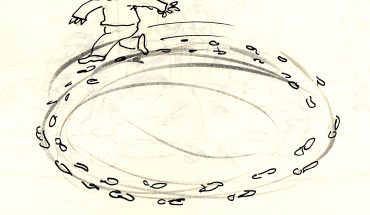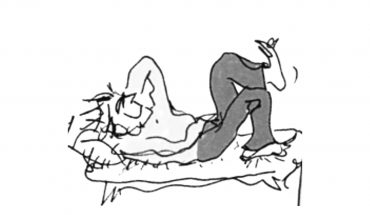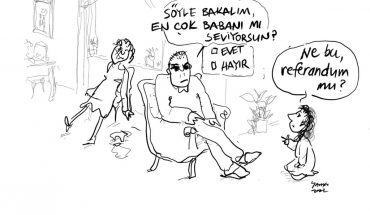*Written by Idil Yazgan, Yale Med., Class of 2024
There is a Turkish saying: “The healthy forget about the gift of health”. You don’t anticipate anything in your life to change, until you become sick. This is exactly how my father felt during his hospitalization due to COVID-19. Just talking to him, I could sense the PTSD and feelings of sadness, fear, and shame rise up inside him. He got sick with COVID-19 right after my brother was hospitalized, again, due to COVID-19. My brother’s hospitalization and his ever-worsening labs put my already sick dad into a state of helplessness. He identifies this helplessness as a result of the many unknowns around the virus. As a medical doctor, my father kept up with COVID-19 scientific findings throughout the pandemic. There are many other diseases that are deadlier than what he had but the medical personnel were as informed or uninformed as he was. My father and my brother’s cases were among first a few hundred to be diagnosed in Turkey, hence the uncertainty and fear around their state of health. When I asked my father the main reason for why he felt anxious throughout his hospitalization, he stated that especially at the time, the medical world didn’t know how the disease would proceed until recovery or death. Throughout the course of most diseases, doctors can provide anticipatory guidance, but for COVID-19 this was not entirely possible. He likened this to driving on a road that you don’t know without a map, AND during a thick fog where you cannot see what is in front of you and even if you do, the next step is still a mystery. This unknowing, created a more strained doctor-patient relationship. He recalls that the doctors in the COVID-19 specific wards were extremely overworked and completely in shock in the presence of this novel coronavirus. In a conversation later, the doctors themselves admitted to not being able to care for their patients the way they usually would have. Thankfully, my dad had really devoted doctors regardless of the hurdles they had to overcome.
Furthermore, my dad’s outlook at the disease was shaped by my brother’s experience which was a nightmare. While my brother was in the hospital without visitors, my parents were watching from afar, getting his lab results and becoming more and more worried every day. During this time, my dad was not only worried for my brother’s health but also saw the progress of the disease. The virus they had shared had done this to my brother and this caused him some anxiety. Most of his doctors agree that his worry and anxiety probably reduced his resilience to the disease. This makes the importance of mental health and stress even more prominent in disease progression and severity. During his recovery in the hospital, he says that he had lost all control over his health and events around him except for the things he could do to follow doctors’ orders. Finally, both my brother and dad fully recovered after a few stressful weeks.
Now, 5 months later, he reads about survivor’s guilt. I asked him when he started doing this, and he mentioned another patient who was in the same ward as he was in during his recovery from COVID-19. This patient was a neurologist, so he was a doctor as well; he stayed at the same ward as my dad; but this patient did not recover. After a long time in the hospital, my dad’s COVID-19 ward companion (I should make it clear that they never actually interacted which I think makes my point even more interesting), died. My dad started having “survivor’s guilt”. He says that he understands that there is no logic behind it: my dad didn’t cause the other patient’s death, he didn’t take up any medical equipment that would have helped the other patient; their cases were completely independent of each other. Yet, he still has feelings of shame, guilt, and sorrow whenever he thinks about his fellow COVID-19 companion, especially knowing and having experienced how difficult the fight against the disease was.
Even months after having experienced this disease, I can see the aftereffects that it has on my dad, from guilt and shame to fear and a newfound appreciation for time to spend with loved ones.



